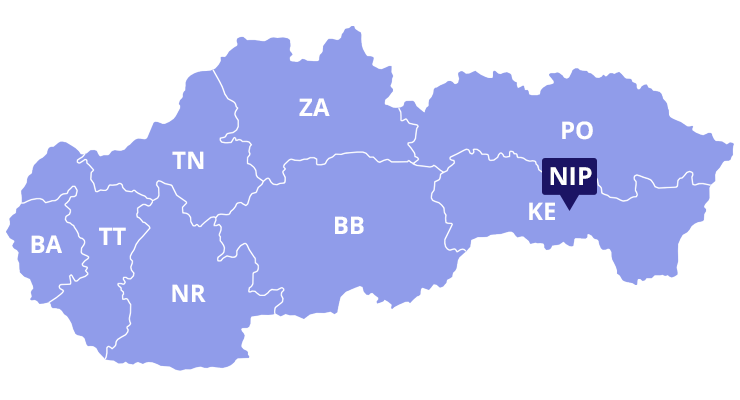Choose inspectorate

Rest period
Rest period An employer shall be obliged to provide an employee whose work shift is longer than six hours with a break for rest and eating for duration of 30 minutes. An employer shall be obliged to provide an adolescent employee whose work shift is longer than 4.5 hours with a break for rest and eating for duration of 30
čítať ďalejNormal working time
Normal working time working time of an employee shall be 40 hours. An employee´s average weekly working time including overtime may not exceed 48 hours. There are certain exceptions of the given rule related to the planning of working time, nature of work, age of an employee. Exceptions of the rule conditioned by the planning of working time: An employee
čítať ďalejOvertime work
Overtime work Overtime work is work performed by an employee by order of the employer or with their consent, beyond the determined weekly working time arising from the predetermined distribution of working time, and performed outside the scope of the timetable of work shifts. With regard to an employee with reduced working time, overtime work is work exceeding their weekly
čítať ďalejWorking time documentation
Working time documentation The employer is obliged to keep records of working time, overtime, night work, active part and inactive part of the employee's working time so that the commencement and the end of the time period in which the employee performed work or ordered, or agreed standby time was recorded. During a temporary assignment, the employer keeps records pursuant
čítať ďalejLabour law legislation
Act on cross-border co-operation in the posting of workers Act on ilicit work and ilicit employment Act on labour inspection Act on OSH Labour code
čítať ďalejUndeclared work liability
Undeclared work liability The term "undeclared work" is not defined in Slovak legislation. The most relevant legal reference is provided by the Act on illicit work and illicit employment (Act No. 82/2005 Coll.). The law defines illicit work as dependent work performed by a natural person for a legal entity or sole proprietor, where: (i) there is no labour-law or
čítať ďalejAsserting claims
Asserting claims A hosting employee who considers that his or her rights or legitimate interests are affected by non-compliance with the conditions of posting to the territory of the Slovak Republic may file a complaint directly or through employee representatives to the competent Labour Inspection Authority or may apply to court and seek legal protection. A complaint against an employer
čítať ďalejLiaison office
Liaison office As the Posting of Workers Directive requires EU countries to cooperate and share information, national liaison offices and authorities have been set up in each country. They monitor the terms and conditions of employment. They are contact points for: authorities from other Member States, companies that post workers, posted workers themselves. Slovak liaison office : National labour inspectorate Address: Masarykova 10, 040 01 Košice,
čítať ďalejUseful links
Useful links The Ministry of Labour, Social Affairs and Family of the Slovak Republic is responsible for employment support, social care and functioning of the pension scheme. It is an important state administration body for the social-legal protection of children and family policy coordination. https://www.employment.gov.sk/en/ Central Office of Labour, Social Affairs and Family is a statutory institution that provides services
čítať ďalejSocial partners
Social partners Confederation of Trade Unions http://kozsr.sk/ The National Union of Employers (NUE) is the biggest employers organization in Slovakia, which associates two thirds of employers producing 70 percent of GDP and 80 percent of the Slovak export. The NUE was established on 30th March 2004 in Bratislava with the intent to protect common employers´ interests, business rights and citizens
čítať ďalej


